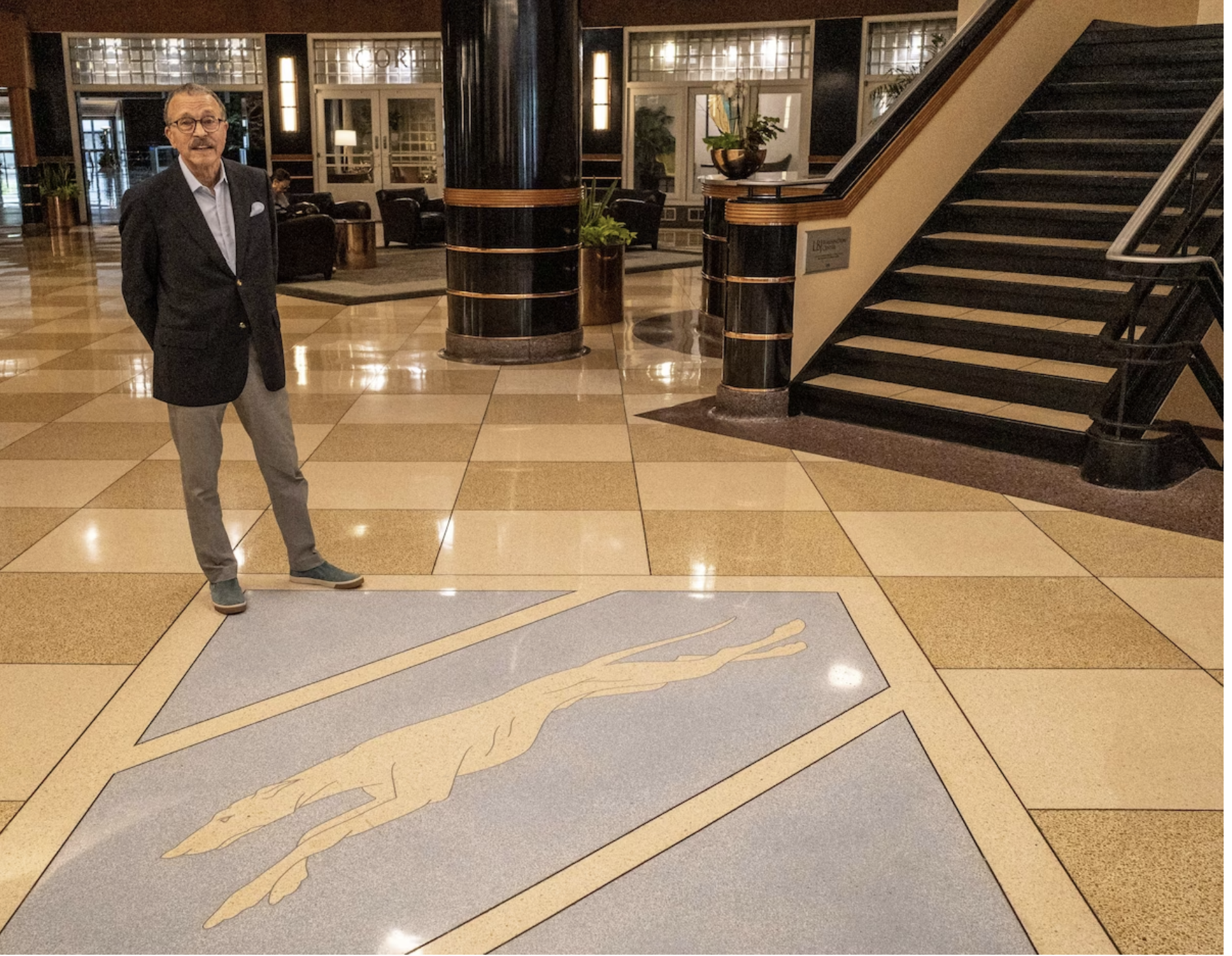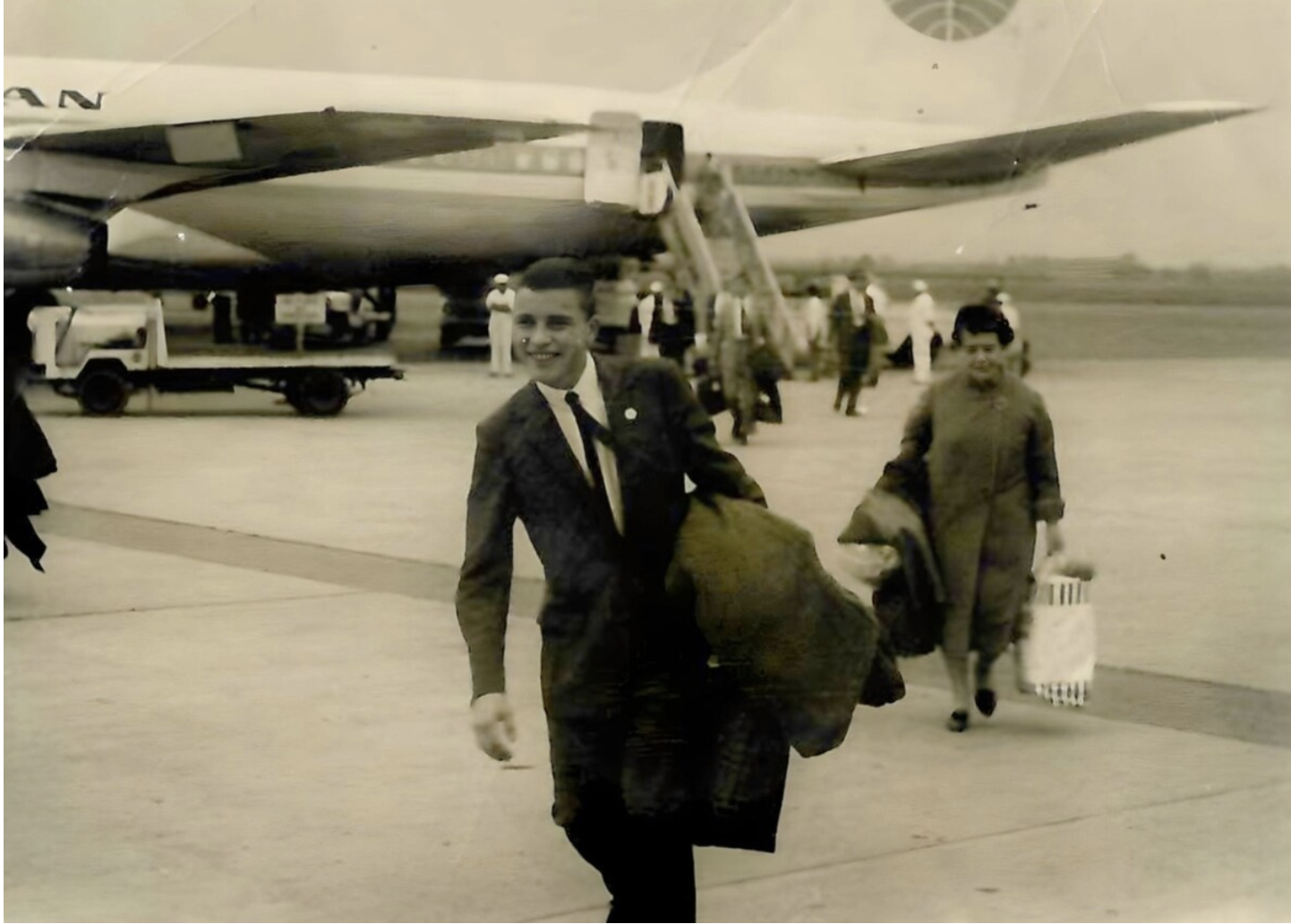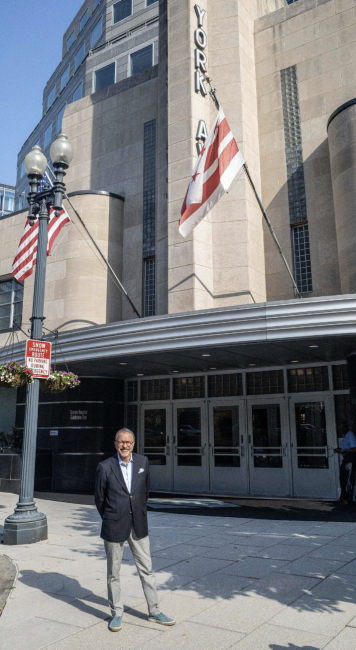
In a way, Jorge Goldstein hasn’t gone very far since the day 57 years ago when he first set foot in Washington, stepping off a bus at the old Greyhound bus terminal at 1100 New York Ave. NW and striding across the canine mosaic set into the floor.
After all, Goldstein has walked through that same lobby countless times.
But in other ways, Goldstein has traveled vast distances — both literally and psychologically. He immigrated to the United States from Argentina. He excelled in college. He went to law school. He became a partner at a law firm that for 30 years has had offices in the building that grew behind the art deco bus station. And he grew something he’d long been denied: a family.
Last week, that law firm — Sterne, Kessler, Goldstein & Fox — packed up to move to new digs two blocks away, and Goldstein reflected on the ways the neighborhood had changed and the ways he had.
“You need to face life,” Goldstein’s Uncle Jack told him the summer he was 17. “Your father’s going to pass away soon.”
Jack Davis, his mother Rebecca’s brother, lived in New York City. Their family had fled Vienna in 1938, just as Austria was being annexed by the Nazis. Goldstein’s father, Moritz, had left Turkey in the 1920s, choosing to leave Smyrna after it was destroyed by the forces of Mustafa Kemal Ataturk.
The couple met in Buenos Aires, married and had Jorge. His mother died when he was 11. In 1966, as Goldstein’s father grew ill, Uncle Jack invited his nephew to visit. Goldstein flew to Kennedy Airport on a Pan Am 707. During that stay, the pair took a bus to Washington, alighting at the Greyhound station.
Goldstein was hungry, so they walked across New York Avenue to a McDonald’s. “This is American food, my boy,” Jack exclaimed.
Goldstein wasn’t sure what the big deal was — he’d been raised on the beef of the Pampas — but that hamburger and fries tasted like the start of belonging.

Soon there would be nothing left for him in Argentina. When his father died a year later, Goldstein moved to America. He studied chemistry at Rensselaer Polytechnic and earned a PhD at Harvard. He went to George Washington University for law school. Today, he’s a leading authority on intellectual property in the biotech industry.
When Goldstein joined Sterne Kessler, its offices were near Dupont Circle. When it moved in 1993 to New York Avenue, no one was sure what to expect. The neighborhood was so sketchy the firm provided guards to walk employees to the Metro after 5 p.m.
The neighborhood blossomed around them. For a few days in 1993, a crew from Hollywood used the firm’s offices to film scenes for a thriller. Partner Rob Esmond knew they’d be shooting in the kitchen, so he printed out an “Employee of the Month” poster with his picture and hung it there as a joke. Look closely during “True Lies” and you’ll see it.
There are a lot of memories in the old building. And there’s still a McDonald’s nearby.
I asked Goldstein what the teenage Jorge wanted when he first came to the United States.
“My goals were to forget what had happened to me,” said Goldstein, 74.
It was easy to lose himself in his studies.
“Getting close to somebody was much tougher,” he said. “I was afraid of losing people. I shied away from intimacy.”
That wasn’t healthy for him, and it wasn’t healthy for his first marriage, which failed. Goldstein credits years spent “on a Freudian couch” with saving his mental health.

The analyst, he said, “forced me to come to grips with the fact that I lost my parents, that I couldn’t deny it, that I needed to deal with it, that I needed to mourn them.”
I asked Goldstein why the boy who wanted to be a research scientist chose law instead.
“Science requires a temperament that can delay gratification for a long time,” he said. “You don’t get results sometimes for years. In law, you plead, you go to court, you win, you lose, you move on. That fits my temperament better than long-term research.”
Goldstein and his second wife, Sandy, live in Bethesda. He has three daughters from his first marriage. Sandy also has three daughters.
“We raised six daughters and 14 grandchildren,” he said.
His granddaughters helped him pack his office for the move to the firm’s new building.
Greyhound buses no longer swarm the old bus station, but as we stood under its distinctive entrance, Goldstein thought about his first trip to America, his first trip to Washington and everything that’s happened since.
“It was unbelievable for me to go from a single kid who arrived here with nobody except my uncle to now having a clan for whom I am the paterfamilias,” he said. “I’ve come a long way.”
Related Professionals
Related Industries
Related Services

Receive insights from the most respected practitioners of IP law, straight to your inbox.
Subscribe for Updates